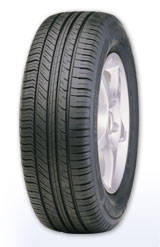Car Plus ran an article for a review of Toyota Camry 3.5L and Nissan Cefiro 350JM. It caught my attention and I bought the newest (Janurary) issue right off the convenience store on the X'mas day. Both front-heavy-and-front-drive cars have straight line power but are humbled by their siblings with smaller engine in the corners, of any radius.
If you know earlier my decision to get the Mercedes AMG C36 this March was based on an early test drive of the Toyota Camry 3.5L (both 2.4L and 3.5L) in Feb. It was a rare test drive arrangement that an old Toyota salesman has arranged for us. The car actually felt more manageable than I thought, with the big 3.5L V6 with its accessories hanging off its nose. My initial impression was very good, despite I could always feel the mass. Toyota actually achieves something quite like what Mercedes does with its famed S-class - making a heavy car feel nimble and easy to manuver under "certain speed" and general road condition. Don't get me wrong. There are tons of engineering and development behind this achievement.
Go get your copy of the Car Plus and read about it. It is the kind of the article that attracts my attention. And I have waited 10 months for this article. What is the fuss about it? Well you know I bitch always about the wrong power/weight ratio of modern cars, and their emission control and the passive safety advancement.
This leads to the next question. Why I need 3.5L engine instead of 3.0L, 2.5L or 2.0L? I need the 3.5L as a minimum as a power reserve because there is a lack of advancement in automobile engineering, thanks to the marketing and the poor consumer public who have shown in the last 10 years the auto industry where the future is.
If you don't know what I am talking about, read this. Our cars are getting heavier in the last 10 years, by at least 15% or more in my estimate. And the tighter emission control and device has ripped the performance off our engine. And thanks to all of that, our cars are getting more expensive, too. And there is more. Depite the fuel efficiency claims of the modern cars, I don't think in the real world condition the cars today are more fuel efficient than those 10 years ago. It makes me think that enough engineering has been done in the past in fuel economy and whatever that have been done in the last tens years are only to offset with weight penalty of the passive safety equipment, luxury items and the 20 air bags.
What I want? I want a 1.5L engine Honda Civic with 0-100kph (0-62mph) in less than 8 seconds, with gross weight no more than 1,000kg. Please look at what our current environmental, sporty Civic we have today and tell me what you think. Ditto the Toyota Corolla. Both companies can no longer produce their entry level family sedans with 1.3L engine. Why? It is because then the cars will be too damned slowed and the sophisticated emission control and multiple catalytic convertors will just strangle the little peppy engine to suffocation. Don't believe me, get yourself, if you can find one, a 1.3L 4-speed manual VW Golf made in 1980s for a test drive. You will be amazed by two facts - first how much technolgy has advanced in the past 20 years. Second how little these advancements have done to us in a meaningful way.
And to end this blog, I have two groups of people to blame. First the majority of marketing people /product managers in the top selling or failing auto companies - their stupidity increases together with their power to show the direction, influence and shape the new cars we drive today. I suggest that they should always have an engineering degree or an pure science discipline under their belt and not a MBA degree. Sorry, I have both. Second it is the mass consumer public who have shown always the awful truth that "customer is always right". Thank you and it actually saved me money by making me turning to junk yards or second hand markets to look for ride made roughly 10 years ago. It is a shame, man!
